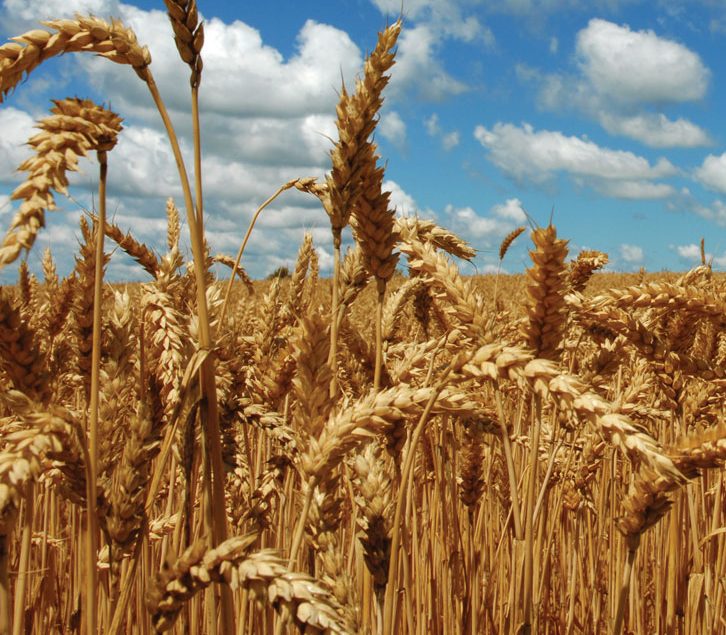Scientists have successfully pinpointed a temperature tolerance gene that could shield wheat from the growing uncertainties posed by climate change, according to a new study published in Frontiers in Plant Science and described in a press release.
Scientists at the John Innes Center, led by Professor Graham Moore, discovered the breakthrough while investigating wheat fertility in plants subjected to varying temperatures.
Temperature significantly influences wheat fertility and, consequently, crop yield, especially during the initial phases of meiosis when parent cell chromosomes pair to generate seeds for the succeeding generation.
Optimal wheat meiosis occurs at temperatures between 17–23° Celsius, with the crop struggling in high temperatures and potentially failing during low summer temperatures.
Identifying genetic elements that can sustain wheat fertility beyond optimal temperatures is imperative for breeding climate-resilient crops in the future.
Earlier research had identified the major meiotic gene DMC1 as a probable candidate for preserving wheat meiosis in both low and high temperatures.
Researchers at the John Innes Center employed gene-editing techniques to remove DMC1 from a variety of Chinese Spring Wheat. Subsequent controlled experiments gauged the impact of different temperatures on meiosis in the mutated plants.
After approximately one week, the gene-edited mutant plants displayed significant effects when grown at 13°C, with 95% of plants exhibiting a reduction in crossover number. Similarly, wheat plants grown at 30°C also demonstrated a diminished number of crossovers compared to control plants.
These results affirm the hypothesis that DMC1 plays a pivotal role in maintaining meiotic crossovers at low temperatures and, to a lesser extent, at high temperatures.
Given the consequential impact of reduced crossovers on grain yield, these findings hold significant implications for wheat breeders navigating the challenges of climate change.
Professor Moore commented, “Thanks to gene editing, we have been able to isolate a key temperature tolerance gene in wheat. It provides cause for optimism in finding valuable new traits at a time when climate change is challenging the way we grow our major crops.”
The subsequent phase of this research involves the quest for DMC1 variations that offer enhanced protection to wheat. Additionally, investigations will explore how the dosage and expression levels of this gene in wheat may influence protection against broader temperature variations.
Temperature tolerance trials are underway in Cordoba, Spain, where regular temperatures of 30–40°C pose a threat to wheat fertility and yield.
The study underscores that DMC1 is a highly conserved gene, influencing temperature tolerance not only in wheat but across plant species.
Professor Moore concluded, “Climate change is likely to have a negative effect on meiosis and therefore on wheat fertility and ultimately crop yields, so screening of germplasm collections to identify heat-tolerant genotypes is a high priority for the future of crop improvement.”












